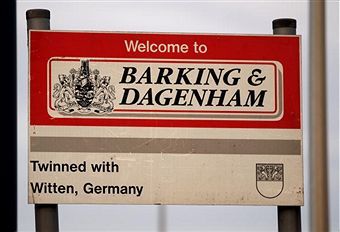 A quite bizarre report from the IPPR which attempts to prove that it is not immigration
which tempts people to vote BNP, but a lack of “resilience”. This fatuous word, resilience, is used more and more by government and quangos and local councils, usually to transfer blame
to ordinary people for the crimes of those in authority – such as putting up with mass immigration, or being poor, or having rotten schools, or being badly educated. “Resilient”
communities are simply affluent, white communities – Richmond Upon Thames, Wokingham and so on.
A quite bizarre report from the IPPR which attempts to prove that it is not immigration
which tempts people to vote BNP, but a lack of “resilience”. This fatuous word, resilience, is used more and more by government and quangos and local councils, usually to transfer blame
to ordinary people for the crimes of those in authority – such as putting up with mass immigration, or being poor, or having rotten schools, or being badly educated. “Resilient”
communities are simply affluent, white communities – Richmond Upon Thames, Wokingham and so on.
But what a deluded report, and how weak its terms of reference. The IPPR cross referenced where the BNP did well with levels of immigration and concluded: “Areas that have higher levels of recent immigration are not more likely to vote for the BNP……in fact the more immigration an area experiences, the lower its support for the far right.”
This astonishing statement is explained by the IPPR’s faulty methodology. How do they define areas with “higher levels of recent immigration”? They simply took the new National Insurance stats for ONE YEAR, 2008/9. How ludicrous is that? The effects of immigration are not felt immediately; it occurs over years and even decades, as local authorities struggle to cope with a new dependent influx and the nature of the area changes. It also ignores the fact that in the south, particularly, but also in parts of Yorkshire (Barnsley, for example), the areas where the BNP have done well are white flight towns where the local people have migrated from areas with high immigration, because they did not like the immigration, or areas where they see what has happened nearby and do not wish it to happen to them. Even then, the IPPR admit an anomaly – in Barking, where the BNP has seen its greatest successes; yes, they admit, there’s been loads of immigration there. Bit of a large anomaly, isn’t it?
A crude way to put its conclusion is that people vote BNP because they are thick and poor and it has nothing to do with immigration – which was the premise they started with, and the premise upon which Labour policy has been based these last 13 years. It’s wrong, obviously, in every possible way.







Comments